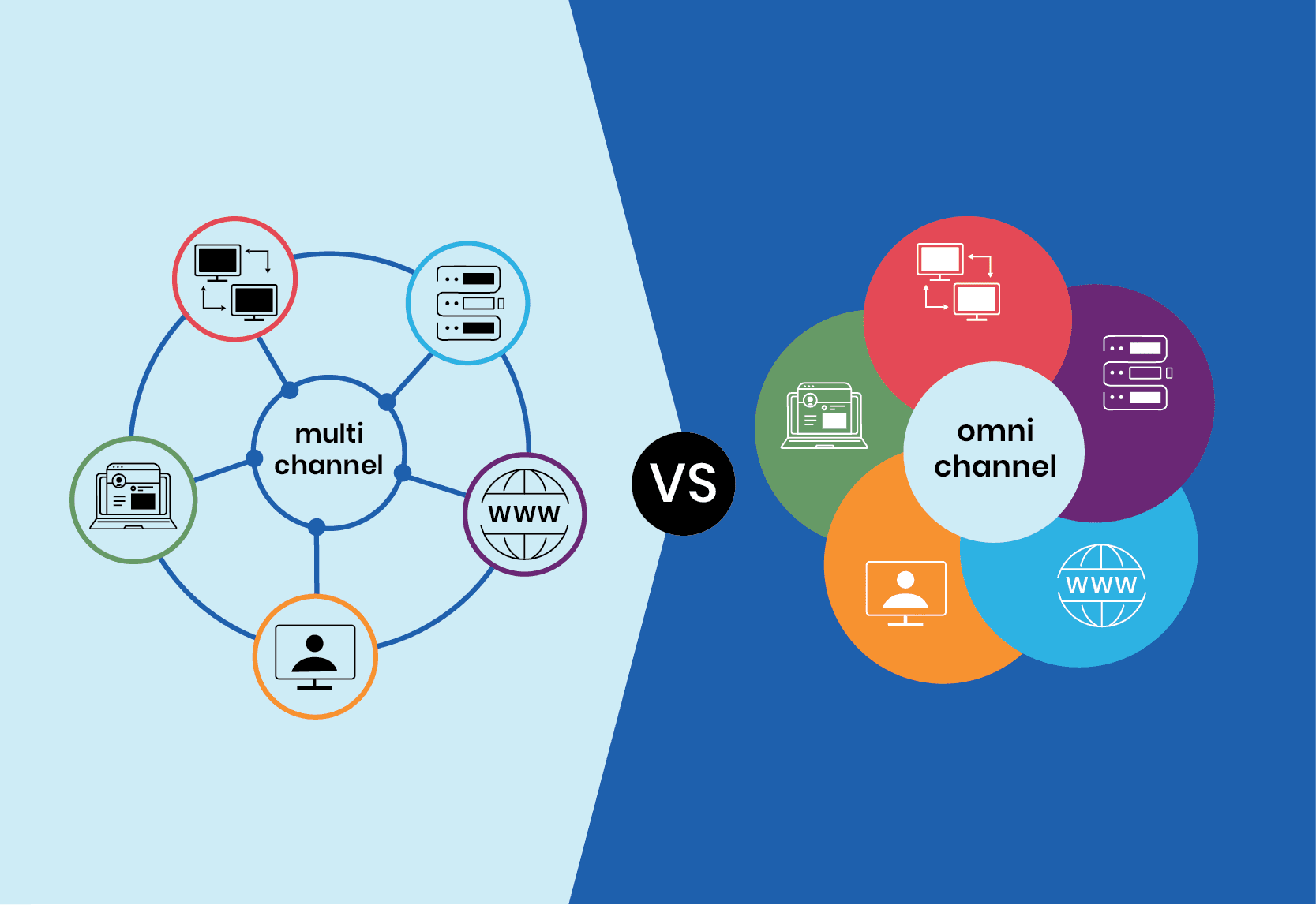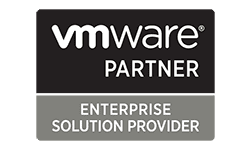Multichannel vs. Omnichannel: What is the Difference?
Exploring the Impact of Multichannel vs. Omnichannel Strategies in Digital Marketing
Kelsey Young, Copywriter and Media Specialist
5 Min Read

The digital age has brought a paradigm shift in how businesses communicate with their customers. The terms “Multichannel” and “Omnichannel” are commonplace. But what do they mean? How do they impact digital marketing strategies?
The key difference is that multichannel marketing includes a limited selection of content channels, while omnichannel marketing includes all of them. By definition, multichannel means “many channels” and omnichannel means “all channels.”
What is Multichannel Strategy?
Multichannel refers to a strategy where business interacts with their customers through various channels. These could range from the physical store front to websites, mobile apps, social media platforms, and email campaigns. The goal is to cast a wide net in hopes of reaching more customers wherever they are.
However, these channels operate independently from each other. There is not necessarily a seamless integration between the channels. Meaning that each channel may operate in isolation, without a connected or consistent experience across each channel. This lack of integration can lead to discrepancies in customer experiences, data collection, marketing efforts, and even branding.
For example, a customer may purchase something online, does not like the item, and tries to return it at the physical store. The store is not able to make the return because there is record of the sale.
The disconnect between the online and in-store policy suggests a disconnect. The customer experience is disjointed, potentially leading to customer dissatisfaction or loss of sale.
What is Omnichannel Strategy?
Omnichannel strategies are like Multichannel in that they span several customer touchpoints. It represents a more integrated approach, emphasizing seamless and consistent customer experiences regardless of channel or device.
However, this is a more integrated approach where all channels by which a company interacts with its customers are fully connected.
Using the previous example, in an Omnichannel set up, the customer would be able to buy something online and return it in-store without any issue. Moreover, the sales associate in the store would have a view of online interactions and purchases.
The benefits of these integrations can include consistent branding, and unified messaging across all platforms. Seamless customer experiences reduce friction, resulting in increased customer satisfaction and retention. It can also attract new customers, boosting sales and profits.
Achieve Seamless Integration with a DXP
In the context of customer experience, combining Omnichannel strategies with streamlined processes and workflows can result in a superior customer journey. Businesses can ensure that customers have consistent experiences no matter the channel they choose and can handle customer requests or issues promptly and efficiently. They can achieve this integrated experience with a digital experience platform (DXP).
A DXP is a software platform that provides an architecture for companies to digitize business operations, deliver connected customer experiences, and gather actionable insights. It integrates various technologies, including content management, data analytics, and integration capabilities, to create, manage, and optimize customer experiences across different touchpoints. For a deeper dive into DXPs, read our article What is a Digital Experience Platform (DXP)?
Here are six ways that using a DXP can help support an Omnichannel approach.
Unified Customer Experience: DXP serves as the backbone for delivering consistent content, services, and user interfaces across all touchpoints. With its help, Omnichannel management can ensure customers have a harmonized experience, whether they’re switching from mobile to desktop, online to offline, or web to app.
Data Integration: A core component of DXP is its ability to integrate and manage data from various sources. This is pivotal for Omnichannel strategies, where understanding a customer’s journey across different channels is essential. With integrated data, businesses can create more personalized and relevant experiences for their customers.
Agility and Scalability: Modern DXPs are designed to be flexible, allowing businesses to quickly adapt to changes or integrate new technologies. This agility supports the ever-evolving needs of Omnichannel strategies, ensuring companies can scale and pivot as required.
Content Consistency: One of the challenges for most Omnichannel management is maintaining content consistency across channels. DXPs often come with content management system (CMS) that ensure content updates or changes reflect across all channels, maintaining brand and informational consistency.
Analytics and Insights: To optimize Omnichannel experiences, businesses need insights into how customers are interacting across different channels. DXPs offer comprehensive analytic tools, helping businesses understand customer behavior and preferences, thereby information better Omnichannel strategies.
Personalization: One of the most advanced features of many DXPs is the ability to create personalized experiences based on user data. By leveraging this, Omnichannel strategies can be more targeted, offering customers what they want, when they want it, regardless of the channel their using.
Choose the right DXP with GDC
The truth is, not all DXPs are created equal. For example, both Kentico and Sitecore offer DXP solutions, but what is the difference between them? Read our article, Choosing the Best Digital Experience Platforms for your Business to learn more.
This is why it is important to consult with experts before choosing the DXP to best serve your business.
That’s where GDC IT Solutions (GDC) comes in. GDC empowers businesses to increase employee productivity, maximize investments, and improve operational efficiencies. With experienced and certified professionals, GDC can discuss your business needs, and your goals for growth to access the right DXP to achieve Omnichannel support.




